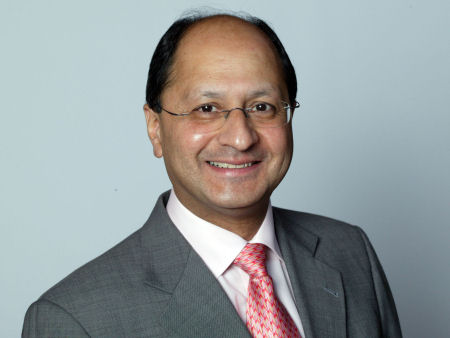TMr Shailesh Vara (North West Cambridgeshire) (Con): It is a pleasure, as always, to follow the right hon. Member for Dwyfor Meirionnydd (Mr Llwyd), although, as will become apparent, I disagree with some of the points he raised. I also declare an interest as a non-practising solicitor.
I wish to direct most of my comments to clause 30, which deals with self-defence by householders in their own homes and by business people whose businesses are part of the accommodation in which they also live—principally, shopkeepers.
As far as I am concerned, this is unfinished business. As the Home Secretary said in her speech, I and a couple of other Government colleagues have in the past tried to change the law to make sure that what is proposed by clause 30 is enacted. I promoted a private Member’s Bill in December 2006, as others had done before me. It had cross-party support, including from the present Attorney-General and my hon. and learned Friend the Member for Harborough (Sir Edward Garnier), the former Solicitor-General, as well as from distinguished Members on the Labour Benches, particularly the right hon. Member for Birkenhead (Mr Field) and—dare I say it?—a very distinguished person in yourself, Mr Deputy Speaker. I therefore congratulate the Home Secretary on introducing this measure.
At present, the test for a householder is to use reasonable force in self-defence, which, I contend, is difficult to define and not easy to enforce. A higher test is required that allows the use of force as long as it is not grossly disproportionate. That will benefit not only the general public but the police and the Crown Prosecution Service, because it will provide them with much clearer guidelines within which to operate.
The example given by the right hon. Member for Dwyfor Meirionnydd would not exempt a person from being prosecuted. We are talking about individuals acting in the heat of the moment. The test is reasonableness—not with the benefit of hindsight, but as it appears at the time.
Mr Llwyd: The example I gave was of three people trying to break into a barn adjacent to a farmer’s house to steal from him. That is the heat of the moment, surely.
Mr Vara: To lie in wait with a shotgun is not to act in the heat of the moment; it is premeditated. That is not what clause 30 allows.
The only people whom clause 30 will not benefit are the criminals who break the law in the first place.
In considering the clause, it is important to reflect on some statistics. The crime survey for England and Wales for 2010-11 estimates that there were 745,000 burglaries during that period. In approximately 205,000 of those instances, the victims were at home, were aware that the offence was being committed and saw the offender. In approximately 75,000 cases, force or violence was used against the victim.
Those who support the present test often say that it is for a court—a judge and jury—to decide on the facts. However, it can take up to a year, or possibly longer, for a case to reach the courts. During that time, the individual has to put up with the stress and anxiety, especially those who are subsequently found innocent. It cannot be right that people who are going to be found innocent, along with their families, have to endure that anguish. It is therefore important that the law is clarified for people who act honestly and instinctively in self-defence.
The public should know that the law is on their side. Sometimes, it is right and proper that we speak up for the victims of crime and the general public who are on the receiving end of the violence, the figures for which I have just given. Let there be no doubt that we are talking about victims of crime—law-abiding householders, shopkeepers and military personnel living in barracks, because the clause covers the military as well.
It is not surprising that leading and prominent members of the police force support raising the test. The former Metropolitan Police Commissioner, Lord Blair, said on his first day in office, when asked about this issue:
“I thought reasonableness was quite a difficult concept at 4 o’clock in the morning in your kitchen, whereas something as stark as gross disproportionality did seem to me to be clearer.”
He was right. At 4 o’clock in the morning, a householder who is confronted by an intruder is frightened—indeed, he is likely to be petrified. His response will be instant and he will have no regard to reasonableness or otherwise.
Lord Blair’s predecessor, Lord Stevens of Kirkwhelpington, did not mince his words either, saying that
“householders should be presumed to have acted legally, even if a burglar dies, unless there is contrary evidence”.
The present commissioner, Sir Bernard Hogan-Howe, told the BBC that he agreed that homeowners need better protection than is available at present:
“I think, probably, there’s an argument at the moment for making sure that that bar gets higher, and that the homeowner has better protection, and the burglar is put more on notice that they’re at risk if they choose to burgle someone’s home while they’re in it”.
It is important to note that the higher bar is reflected in the guidance for police when arresting people. The test for individuals who claim to have been acting in self-defence was updated only two months ago:
“The changes are driven by the coalition commitment to protect householders and others from unnecessary arrest when they use force in the belief that they are acting in self-defence. The amended Code…sets out that, in order to establish grounds to suspect a person of committing an offence, officers should consider facts and information which tend to indicate the person’s innocence as well as their guilt.”
The Crown Prosecution Service guidance also uses a higher level:
“You are not expected to make fine judgements over the level of force you use in the heat of the moment. So long as you only do what you honestly and instinctively believe is necessary in the heat of the moment, that would be the strongest evidence of you acting lawfully and in self defence.”
It goes on to say:
“If you have acted in reasonable self-defence, as described above, and the intruder dies you will still have acted lawfully.”
Given that the guidance for the people who implement the law—the police and the Crown Prosecution Service—refers to a higher test than that laid down in the present law, it makes sense for us to clarify the law and make it easier to implement, rather than for the implementers to rely on guidance.
There is considerable public demand for this measure. When I introduced my private Member’s Bill in 2006, one of my local newspapers, the Cambridge Evening News, conducted a survey that found that more than 90% of the people who responded were in favour of raising the bar of the test. An ICM poll conducted by The Sunday Telegraph in December 2009 found that 79% of those who took part favoured changing the test from reasonable force to grossly disproportionate force.
A change in the law is not only necessary; it will send out a powerful message. It will tell law-abiding citizens that the law is on their side and not on the side of criminals. It will also show that an Englishman’s home is still his castle.
| Hansard
Subsequent intervention in the same debate
Mr Vara: The hon. Lady cites the CPS, but what does she have to say about the fact that at least four Metropolitan Police Commissioners, including the present one, believe that the law should be strengthened and enhanced?
Jenny Chapman: As I was about to say, we are ready and willing to engage with the Government on any proposals they have that might further improve the law. We want to see the system work as best it can for victims of crime and, of course, to see justice done in every case. However, concerns have been expressed by many outside this place, and these need answering. The Government need to assure the public that the change does not add confusion and explain exactly how it adds protection. The line between “disproportionate” and “grossly disproportionate” is still unclear.
| Hansard

Shailesh Vara leads a Parliamentary debate to commemorate the 40th anniversary of the arrival in Britain of Asians expelled from Uganda.
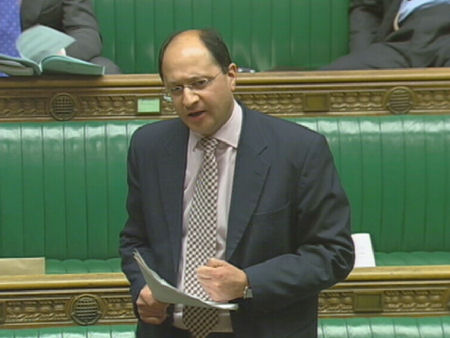
Mr Shailesh Vara (North West Cambridgeshire) (Con): I beg to move,
That this House commemorates the 40th anniversary of the arrival in Britain of Asians expelled from Uganda, notes their contribution to Britain and welcomes their integration into the fabric of the nation.
I thank the Backbench Business Committee warmly for allowing me to have this debate. It was originally due to take place last Thursday, but was postponed because of the need for the Prime Minister to make a statement on the Leveson inquiry.
On 4 August 1972, the Sandhurst-educated President of Uganda, General Idi Amin, informed troops he was addressing in Karamoja in east Uganda that he had had a dream in which God had appeared to him and told him that he had to deal very quickly with the problem of the Ugandan Asians. This referred specifically to some 57,000 Ugandan Asians who held British passports. The problem, if it can be called a problem, was that they numbered 1% of the population but controlled approximately 90% of the country’s economy.
The response from Idi Amin was brutal and swift. He said that they had 90 days in which to leave the country, and during those 90 days they had to carry red identity cards at all times. He made it absolutely clear that if any of them remained in the country after the stipulated 90 days, they would be rounded up and thrown into concentration camps. Churchill described Uganda as the pearl of Africa, yet, with such a pronouncement, a climate of fear and desperation fell upon the Ugandan Asians. The sense of desperation was eloquently summed up by the late Manubhai Madhvani in his autobiography, “Tide of Fortune”, in which he described the atmosphere at the time and his own imprisonment in a military prison from which few people returned.
As for the response in Britain, there was clearly a fair amount of hostility, both in Parliament and the country at large. Some of it was based on basic prejudice, but there was also genuine concern in areas with high unemployment, in areas with long waiting lists for social housing and in areas with large immigrant populations already settled, such as Leicester. Leicester city council certainly took no chances, because it took out adverts in Uganda telling people not to come here, especially to Leicester, because they were not welcome.
Credit must be given to the Government of the time, led by Edward Heath, who took a courageous decision.
Jonathan Ashworth (Leicester South) (Lab): I pay tribute to the hon. Gentleman for securing this debate. He mentioned Leicester, so I thought I ought to spring to my feet. It should be remembered that not all councillors on Leicester city council in the ’70s agreed with the council’s decision. In fact, the current Mayor of Leicester, Sir Peter Soulsby, as a young councillor, voted against it. It should be said that Leicester today is a much stronger, more confident and more vibrant city because of the contribution of the Ugandan Asians.
Mr Vara: I am grateful to the hon. Gentleman for that intervention. He is absolutely right that not everyone was hostile. Indeed, Sir Peter Soulsby—until recently a colleague of ours—said that Leicester was a stronger place because of the Ugandan Asians.
Edward Heath rightly took the decision that both morally and legally Britain had an obligation to take in the refugees. The position was best summed up in a statement in Parliament on 7 August 1972, when Alec Douglas-Home, the then Foreign Secretary, said:
“We accept a special obligation for these people who are British passport holders”.—[Official Report, 7 August 1972; Vol. 842, c. 1261.]
There was, of course, a fair amount of frantic international diplomacy on Britain’s part, and we managed to persuade 29 other countries to take some of the people concerned. Those countries included the United States, Canada, Australia, India, Pakistan, New Zealand, some Scandinavian countries and some Latin American countries.
Sir Peter Bottomley (Worthing West) (Con): I hope this is not the most important point I will make, but will my hon. Friend remember the Falklands, which asked for a couple of doctors and then a plumber?
Mr Vara: As always, my hon. Friend makes an apt intervention that enlightens the debate.
As a consequence of so many countries agreeing to take refugees, Britain ended up with 28,000 people—28,000 British passport holders who came here frightened, homeless, penniless and with only the clothes on their backs. They arrived at Stansted airport, and some at Heathrow airport, and were met by demonstrators holding placards saying, “Go home! You’re not welcome here.” The fact that they were British passport holders and had no home to go to was by the bye as far as the demonstrators were concerned.
Britain hastily set up the Uganda resettlement board, whose job was to give immediate assistance to the refugees, find them homes and jobs and, importantly, ensure they were resettled in the community at large. To start off with, they settled in 16 resettlement centres scattered throughout the country—former military bases that were mostly bleak and isolated. But this was a time when Britain was at its best. Having accepted responsibility for these refugees, voluntary groups, church groups, charity groups and ordinary citizens came out to help them. They showed their warmth, their compassion and their care for their fellow human beings. Many of the indigenous population did not have much themselves, but what little they had they were happy to share with the newcomers, giving them food and shelter.
Councils throughout the country also responded. In south Wales, Pontardawe rural council offered three council homes, Aylesbury rural district council offered six and Peterborough city council—I represent part of Peterborough—helped too: the then leader of the council, Councillor Charles Swift, went to Tonfanau resettlement centre in Wales with local employers and offered 50 council houses, provided the people agreed to take on the jobs offered by those with him. For his efforts, Councillor Swift received hate mail and death threats, and for a while required a police escort to take him to work as a railway driver.
This was also a time when individuals opened their doors. Some had only one room spare in their house and took in one individual, but others had more space and took in whole families. This was the British character at its best—but there was a little humour as well. There was the incident of two refugees in a resettlement centre being quite miserable, but suddenly finding that in Britain the shops closed at 5 o’clock and during the weekends. They smiled, and one said to the other, “We’re going to be rich.”
Very soon the refugees moved from the resettlement centres into the mainstream community. Rather than seeing the expulsion as life-destroying, they looked at it as a setback. They picked themselves up and started all over again. They took whatever jobs were available, worked long hours, made a success of their jobs and their lives and built a better future for their families; and now, many of those people employ hundreds and thousands of our fellow citizens. One such example is Mr Shabbir Damani in Peterborough, who came here penniless but now has nine pharmacies employing 100 full-time staff and another 100 or so on an ad hoc basis. There are many other such examples.
There were successes not only in business but in the professions, the military, the police, politics, media and entertainment, charities, sport and so on. There is also the case of Dr Mumtaz Kassam, who was expelled at the age of 16 and went to a resettlement centre in Leamington Spa, but ended up being, until recently, deputy high commissioner for Uganda serving in Britain—serving the country that had once expelled her as a teenager. The precise contribution made by the Ugandan Asians is difficult to quantify in economic terms, but it is generally felt that the south Asian community—or those with origins there but who are now settled in Britain—number 2.5% of the population, but are responsible for 10% of our national output.
Simon Hughes (Bermondsey and Old Southwark) (LD): I was a student when Edward Heath and the Government of the day bravely decided to respond positively. If ever there was an example of how a policy can help people in their hour of need and understand that foreigners—although there was a strong British link—can be an asset not a disadvantage, this is it. We would do well to continue to learn that lesson, as we address the inevitable plight of other people who might look to us for help when, through no fault of their own, their Governments turn on them as minorities and oppress them, as the Amin Government did to the Ugandan Asians.
Mr Vara: My right hon. Friend makes a valid point. The Ugandan Asian community is a case study of a minority group who were persecuted, came here but did not seek to rely on the state, instead picking themselves up and becoming self-reliant.
Many, many success stories are recorded in the media, but we must not forget that not all those 28,000 people became millionaires: many simply got on with their everyday lives, in whatever trade or job they had, and became model citizens in their own way, doing their bit for the greater good of the country as a whole. It is important to record that. There can be no doubt that the community as a whole has punched above its weight in Britain—it has done more than its fair share for mainstream Britain.
I am reminded of the Parsee community, who were persecuted in Persia—now Iran—more than 1,000 years ago: because of their faith, Zoroastrianism, they had to leave Persia. They left in their ships and went to the shores of the state of Gujarat in India. The leader of the Parsees sent an emissary to the Maharajah of the state of Gujarat to say, “We have been persecuted and we ask that you give us refuge in your country.” The Maharajah sent the emissary back, saying, “I’m sorry, I cannot take you and your people. My own land is too populated, and, besides, you have a different religion and culture. But I will give you this shipload of provisions: food, water, milk, honey—anything you need to take with you to another place where you might find a home.” The leader of the Parsees took a cup of milk from the provisions that were sent and some sugar. He put the teaspoon of sugar in the milk, stirred it around, sent for the emissary and said, “Tell the Maharajah of the state: ‘In the same way as the sugar has blended and integrated with the milk, so too, if you give my people refuge in your country, will we integrate.’”
The Parsees were allowed to stay in the state of Gujarat, and they stuck to their word. They became model citizens and are leaders in various aspects of Indian life—the military, academia, business, entertainment, and so on. One such individual is Ratan Tata, of the Tata group. Not only does he employ thousands of people in India, but the Tata group employs more than 50,000 people in Britain, including more than 700 in my constituency, one of the group’s companies being Diligenta Ltd. The position was summed up eloquently by my right hon. Friend the Prime Minister when I asked him a question recently in Prime Minister’s questions. Referring to the Ugandan Asians, he said that they had made a
“fantastic contribution to our national life.”—[Official Report, 28 November 2012; Vol. 554, c. 224.]
The Ugandan Asians who have settled here in the past 40 years have truly settled and truly integrated, becoming part of the fabric of our nation.
| Hansard
...
...and winding up the debate
Mr Vara: With the leave of the House, may I say that when the House debates people coming to this country there are often negative overtones, but it has been a pleasure—I think that all Members agree—to see today that the House is united in commemorating the 40th anniversary of the arrival of the Ugandan Asians, who have British passports and the majority of whom were of Indian origin. I thank all Members who have contributed to the debate by telling us about their personal experiences or those of their constituents. In so doing, we have finally recorded, 40 years on, the enormous contribution that this relatively small number of people—28,000—have made to the United Kingdom and the fact that Britain really was at its best. It showed its true character, its warmth, generosity and ability to care for those in need. To paraphrase a famous quote: they came, they saw, they integrated.
| Hansard
The Association are very concerned that migrants from some European Union countries are fishing in the River Nene, but instead of returning the fish to the river, they are taking them home for consumption.
Efforts by the Association, Police and Environment Agency to stop this practice have so far met with little success and bailiffs who sell the fishing permits are increasingly being faced with intimidation when they try to enforce the rules.
Mr Andy Jackson, secretary of the local Association contacted Mr Vara to highlight the seriousness of the problem. Mr Vara had discussions with Mr Paul Phillipson, Executive Director for Operations at Peterborough City Council to find a way forward. Following the discussions, Mr Phillipson is arranging a meeting between some of the parties involved, including the Anglers, Police, Environment Agency and Council officers.
Mr Vara said:
“This is a serious problem and one that has been going on for quite a while. It is time to deal with it firmly. It is simply unacceptable that fish are being taken in this way and worse still that bailiffs are being subjected to intimidation when they try to enforce the rules.
“A number of agencies are involved and it is important that there is a coordinated approach. I am grateful to Mr Phillipson for arranging a meeting of all concerned with a view to finding a way forward.”
A statement from the Council said:
“Mr Paul Phillipson, Executive Director – Operations at Peterborough City Council has arranged a meeting with the Peterborough and District Angling Association, Environment Agency, Local Police and City Council officers with a view to discussing how we deal with this situation in a multi agency partnership, which will support the angling community.”

If the proposed turbines go ahead, they threaten the closure of the eco-friendly Club of around 50 members and 8 instructors, which has been going for twenty-five years. The Club offers the sport to all ages, with youngsters as young as 16 being able to gain their gliding license. Moreover, the club has links with nearby schools and is very popular within the community, providing over 300 trial flights annually.
Mr Vara supports the Club in its bid to stop the turbines, as the turbines provide a serious threat to gliders. If the proposals go ahead, the Club will have to close.
Last Friday, Mr Vara visited the Club and went up in a glider to see the danger first hand. He is in no doubt that the turbines are life threatening and is contacting Councillors and planners at Huntingdonshire District Council to make them aware of the situation. Mr Vara has suggested that Councillors and planners involved in the planning process should themselves go up in a glider to fully appreciate the dangerous situation.
Mr Vara said:
“It would be a great loss if the Club is forced to close down. It welcomes all ages and plays a central role in the community. Having gone up in a glider and seen the situation myself, there is no doubt in my mind that the proposed turbines are life threatening. I would recommend Councillors and planners at Huntingdonshire District Council who are involved in the planning process to also go up in a glider to see for themselves the seriousness of the situation.”
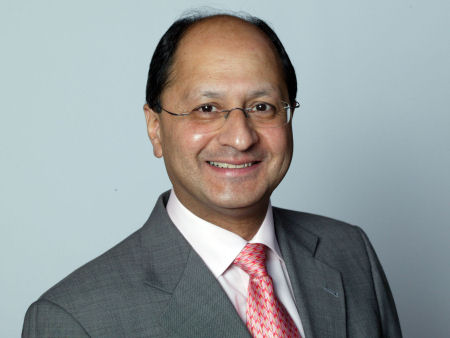
Mr Shailesh Vara (North West Cambridgeshire) (Con): As a result of George Entwistle going there might be other departures from the BBC because of the present crisis. If so, will the Secretary of State assure the House that she will press Lord Patten to ensure that not only the notice provisions of individuals’ contracts but the clauses that speak of proper performance of their duties are looked at; and that if payments are made proper consideration will be given to what, if any, performance there has been?
Maria Miller: My hon. Friend speaks of ensuring that contracts are correctly put together. I join him in saying that any reward for failure is inappropriate not only for the BBC but for any organisation.
| Hansard

Mr Shailesh Vara (North West Cambridgeshire) (Con): What discussions he has had with ministerial colleagues and others about foreign direct investment in Wales. [122191]
The Secretary of State for Wales (Mr David Jones): I have regular discussions with ministerial colleagues about attracting foreign direct investment to Wales. I was delighted that my right hon. Friend the Deputy Prime Minister, during his visit to Turkey earlier this month, announced that a Turkish steel company is to open a new factory in Cardiff.
Mr Vara: I am grateful to my right hon. Friend for those comments. Does he agree that UK Trade and Investment’s global presence through our embassies and high commissions provides a huge opportunity to ensure direct foreign investment in Wales?
Mr Jones: UKTI has global reach, with its officials embedded in every British mission around the world, and I am delighted that it is seconding two officials to the Welsh Government.
| Hansard
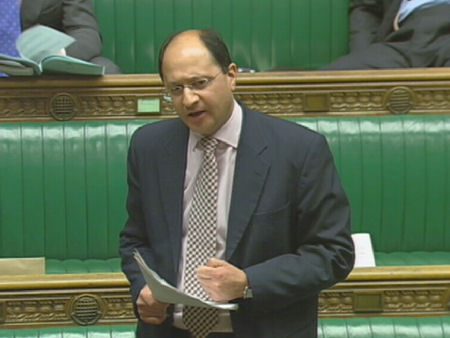
Mr Vara introduced a Private Members’ Bill in 2007, which sought to make similar changes, by amending the law from the present “reasonable” force level to a higher test, of being allowed to use force as long as it is not “grossly disproportionate. Unfortunately, the previous Government did not allow the Bill to go through.
Mr Vara said: -
“I am delighted that Chris Grayling will be taking action to improve the law to protect householders against intruders in their own homes. It is important to have clarity in this area and the law currently in place is in urgent need of reform, particularly given recent examples of individuals having to defend their homes with force.
I believe that many people will agree with the proposed changes and am pleased that the measures proposed in my Private Members’ Bill in 2007 will now be enacted.”

Mr Vara has received complaints from residents on a number of matters, including the level of noise and dust, and the hours of operation. Moreover, work is being carried out to extract limestone even though the 2003 planning permission, granted by East Northamptonshire District Council, does not authorise it.
Mr Vara has written to Mrs Gillian Beasley, chief executive of Peterborough City Council, as Wansford is part of her remit, and also to Dr Paul Blantern, chief executive of Northamptonshire County Council, as the quarry is near Yarwell in Northamptonshire. Mr Vara has asked for a review of the case and for the issues raised by residents to be addressed, as well as asking for a meeting between residents and staff from the planning departments.
Mr Vara said:
“Along with many others I have serious concerns about how this work is progressing. The original planning permission does not allow for the extraction of limestone and there appears little control on hours of operation, levels of noise, dust and so on. I have written to the chief executives of both Peterborough City Council and Northamptonshire Country Council and asked them to look into the case. In the meantime I have been in touch with the Planning Department at Peterborough Council and appreciate their agreeing to a meeting. I hope that Northamptonshire County Council will also agree to a meeting with the community”.
Mr David Stuart-Mogg, from Wansford, added:
“In the past Peterborough City Council has described surrounding villages as ‘the jewels in Peterborough’s crown’. Sadly words appear to be the easier option when it comes to protecting these valuable assets. We are indeed fortunate to have an MP such as Mr. Vara to fight our corner when our elected local authorities appear unable, or unwilling, to accept ownership of their statutory responsibilities”.

The previous funding arrangement was not based on actual numbers and the Agency had declined requests by the school for more money. However, after discussions between Mr Vara and Mrs Helen Price, Head Teacher of the College, Mr Vara wrote to Peter Lauener, Chief Executive of the Agency, pointing out the imbalance in funding and requesting a review of the funding process. Following the review, the Agency has adjusted its funding criteria, which will now be based on actual numbers attending the College.
The additional funds will prove very useful and will enable the College to provide better quality education for its students.
Mr Vara will be visiting the College later this term, to see the new Sixth Form facilities, as well as meet some of the students and staff.
Mr Vara said:
“Hampton College has been underfunded for a while now and it was important to get the correct amount of money based on actual numbers of students. I am delighted that my request for a funding review by the Education Funding Agency has been successful. The additional funds are greatly appreciated and will be well used. I look forward to visiting the college again in the near future and to meeting with students and staff.”
Mrs Helen Price added:
‘Hampton College is extremely grateful for Shailesh Vara’s support in securing fair funding for our Sixth Form. He took a keen interest in our case and wanted to help us challenge a funding mechanism which we both felt disadvantaged schools in areas of rapid demographic growth, such as the Hampton development.
We look forward to welcoming Mr Vara to our school later on this term, when he will be able to view the new Sixth Form facilities and meet some of our students.’
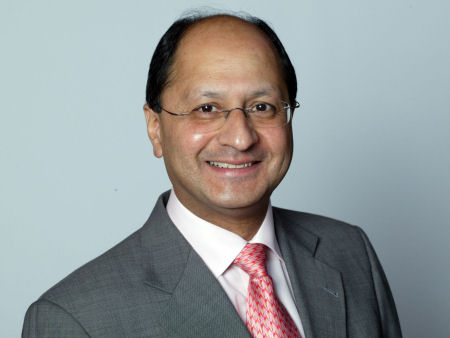
The event encompasses the wartime spirit and will be held at the Ex-Service and Working Mens club. The day will include historical displays, re-enactors as well as a military vehicle display.
Mr Vara said:
“I look forward to attending Sawtry’s Royal British Legion’s day. It is a great opportunity to bring the community together and to remember our country’s history. It also reminds us of the lives and dedication that our nation’s brave men and women have given in the past and continue to give today.”
